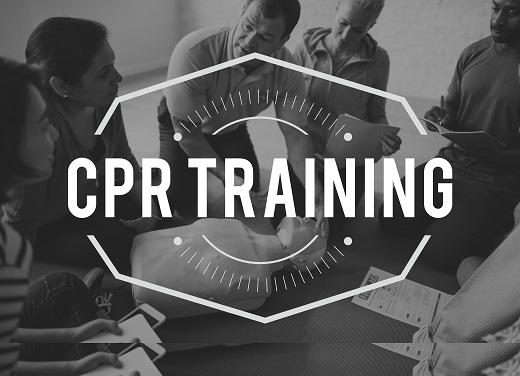 There are multiple options for those planning to get their CPR training and certification when it comes to the types of courses offered as well as the training instructors. The two “biggest fish” in the CPR training pond are inarguably the Red Cross and the American Heart Association (AHA).
There are multiple options for those planning to get their CPR training and certification when it comes to the types of courses offered as well as the training instructors. The two “biggest fish” in the CPR training pond are inarguably the Red Cross and the American Heart Association (AHA).
Both are highly respected and reputable organizations, so how should you base the decision when deliberating between Red Cross or AHA certification for yourself or your employees?
The Difference Between Red Cross & American Heart Association’s CPR Training
While both associations are somewhat comparable in terms of quality of training and legitimacy of certification, there are some differences.
The American Heart Association is a Leader in research & statistics
One significant difference is that while the Red Cross promotes recent research, the American Heart Association are the researchers, statisticians, and providers of information regarding mainstream heart health, cardiac arrest and resuscitation statistics. Other organizations use AHA information to create their own CPR guidelines. In other words, if it weren’t for the fact that the AHA was conducting and reporting their research, CPR techniques and guidelines would be stuck in previous decades.
Instead, the AHA continually updates their guidelines based on evidence-centric research on a regular basis. These updates trickle down the quickest for them since they have their fingers on the proverbial pulse of current findings – and other organizations such as the Red Cross follow suit accordingly.
In fact, you’ll often notice the Red Cross and organizations like it include verbiage, like, “…training consistent with the 2015 AHA Guidelines for CPR… ” indicating that they base their training methods on those established by the AHA.
AHA courses and training methods are the most in-depth
As a result of their evidence-based guidelines and training, AHA courses often go more in-depth their Red Cross counterparts.
The three most popular courses for the general public include:
- Heartsaver CPR AED
- Heartsaver CPR and First Aid
- Heartsaver CPR, AED, and First Aid
AHA also offers a range of situation-specific courses and tools for the community, including:
- Family & Friends CPR
- Adult & Child CPR Anytime Training Kit
- Infant CPR Training Kit
- CPR in Schools Training Kit
- Hands-Only CPR
These community-focused courses do not provide a certification card at the end but, rather, are ideal for those who want to familiarize themselves with CPR and don’t require certification for the job or workplace. Examples include families with small children, babysitters, friends, and neighbors who have pools, etc.
Perhaps even more “famous” are the AHA’s courses dedicated to medical professionals and/or those who work in medical settings. These in-depth and more institution-specific courses include:
- Basic Life Support (BLS) Training, as well as HeartCode BLS
- Advanced Cardiovascular Life Support (ACLS), as well as ACLS for experienced providers
- Pediatric Advanced Life Support (PALS)
- Pediatric Advanced Assessment, Recognition & Stabilization (PEARS)
More specialized courses specifically for healthcare providers include:
- Acute Stroke Online
- Airway Management
- ECG and Pharmacology
- And more
AHA courses are more widely required for healthcare providers
Again, as the result of their leadership in the field of heart-centric medical research, AHA courses are more often required for healthcare providers by their employers. If you are a nurse or healthcare practitioner in the Chapel Hill and/or Charleston areas, it’s worth verifying whether or not prospective employers have a preferred CPR certification provider before getting certification on your own. Odds are that their preference is an AHA-issued certification card so you don’t want to waste time or resources on a Red Cross course.
It’s also possible your employer offers corporate CPR courses as part of your intake training or orientation. Offering these courses at your place of work or at a central location is a smart and financially-efficient means of ensuring employees are always up-to-date on their certifications.
AHA upholds higher standards for CPR certification
 There is a rumor that AHA CPR courses tend to be more detail- and practice-oriented – as well as more in-depth. This can make their courses slightly more challenging. The truth of that rumor is for the student to decide. However, when it comes to learning lifesaving techniques, strategies, and skills – it makes sense that the most challenging courses would also be the most effective and rewarding.
There is a rumor that AHA CPR courses tend to be more detail- and practice-oriented – as well as more in-depth. This can make their courses slightly more challenging. The truth of that rumor is for the student to decide. However, when it comes to learning lifesaving techniques, strategies, and skills – it makes sense that the most challenging courses would also be the most effective and rewarding.
What we do know is that the American Heart Association does uphold higher standards when it comes to a “passing score.” Currently, Red Cross requires students to have a passing score of 80% or higher on the final exam, whereas the AHA requires a passing score of 84% or higher. This may also be of interest to prospective employers, whose overall risks are lowered when hiring the most qualified and trained employees.
Keep in mind that a more challenging course is nothing to worry about because AHA instructors work closely with their students to ensure they’ve learned all they need to know in order to pass the test and demonstrate competent breathing, compression, resuscitation and AED skills. As a result, the large majority of AHA CPR training students are able to leave the course with a confident “pass” and a certification card in hand.
American Heart Association Certification Lasts Longer
Most Red Cross certification cards are only valid for a single year, with the exception of their health provider course. In comparison, AHA CPR and healthcare-oriented certifications are good for two-years, after which they always need to be renewed.
The basic instructions and breath-to-compression ratios between both organizations are the same since these ratios and technique recommendations are all based on the most recent AHA research findings and survival rates for bystander and healthcare-provided CPR.
Are you interested in receiving the highest CPR instruction and obtaining the most reputable CPR certification available? Contact us here at CPR Consultants and learn more about our AHA authorized training center and our ability to bring CPR training right to your door.
Contact Us to Learn More About Our CPR Classes
